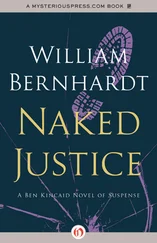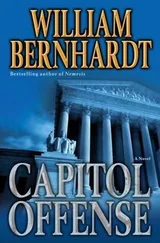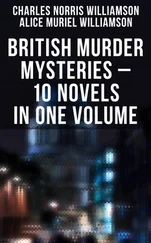“When did you leave Stroud and come to Tulsa?” Ben asked, after they finished the preliminaries.
“Just after the Level Five tornado hit. Little over a year ago.” Her voice was flat and uninflected, and yet at the same time packed with raw emotion. “It had been a hard year. For both me and my brother.”
“What had happened?”
“We … lost our parents.” Again, the fact that she was not overtly emotional, that she was obviously fighting it back, made what she had to say all the more tragic. “They were young—early fifties—but there was a tragedy. A traffic accident. They were driving late at night and a truck came out of nowhere at an intersection and—”As she paused, Ben could almost see the strain, the furious energy it took to suppress her anguish. “They were killed instantly.”
“Where did that leave you?” Ben asked.
“In a mess. Kirk and I didn’t know what to do. I was only eighteen, then—I hadn’t even finished high school. We both worked at the Tanger Outlet Mall. For two kids living at home, that was fine. But once Dad was gone—and there was no insurance—we couldn’t make ends meet. And then after the tornado hit and destroyed the mall—” Her head drooped slightly. “Well, that just seemed to be the killing stroke. There was nothing left for us in Stroud. So we came to Tulsa.”
Ben kept the pace of the questioning slow and easy. She was doing great so far, but he knew it would not take much to push her over the brink. “That must have been a difficult decision.”
“To leave everything you’ve ever known and come to an unfamiliar city full of strangers? Yes, you could say that.” She looked up, and for the first time, a tiny spark of fire seemed to light in her eyes. “At the same time, it was an adventure, if you know what I mean. We were starting fresh, leaving the pain of the past behind.” She paused a moment. “I heard what that … psychologist said about me, about how the repeated traumas and the change of environment unbalanced my mind or something. But she’s got it all wrong. I still had Kirk, and I had my head together, and it’s not as if I was moving to the moon, after all. I had to get out of Stroud. If I’d stayed, I would’ve been much worse off. Even now, I still know that.”
“What happened when you got to Tulsa?” Ben asked. He appreciated her unwillingness to play the martyr, and her defensiveness about being called crazy, but at the same time, if the jury was going to sympathize with her, they needed to understand the full horror of her situation. “Did everything go as planned?”
“No. Nothing went as planned. Everything was harder than I anticipated. Couldn’t find an affordable place to stay. Couldn’t find work. It seemed like the only jobs available were minimum wage—burger joints, that sort of thing. We couldn’t make it in Stroud on that kind of money—what were our chances of making it in the big city? Plus, Kirk wasn’t working at all. He was having some serious emotional problems. He took the death of our parents hard, and the trauma of the tornado even harder. He still talked to Mom and Dad as if they were in the room with us, and he used to sleep in the bathtub at night—because he figured that would be the safest place to be if a tornado hit. He had always been … confused, and everything just seemed to get worse for him. He was in a bad way. So there was no chance of him working. I was on my own.”
“That’s why you ended up working at a stripper club, isn’t it?”
“It was the only thing I could find that paid a decent wage—not counting those jobs that were illegal and a lot more disgusting than stripping. Contrary to what you’ve heard, I never worked as a hooker and I never would. I didn’t like stripping—it was humiliating and, frankly, hard work. Dressing up like a nurse or a schoolteacher or whatever, then peeling off your clothes in front of a bunch of drooling men. But it did pay enough to get a small apartment for me and Kirk. And some of the other girls became friends. I can’t tell you what a difference that made. Say what you like about those girls—when you’re all alone in the big city, it’s good to have friends. Any friends.”
“Were you happy at this time?”
“Happy might be stretching it. I was surviving. I was eating regularly. At the same time, I had zero security. One missed check would’ve been enough to put us on the skids. I started having trouble sleeping, worrying about what might happen if I lost my job.” She paused thoughtfully. “No, I can’t say I was happy. I was walking a very thin tightrope, and I knew that the tightrope could snap at any moment. Still, it was better than before.”
As always, Ben kept a careful watch on the faces in the jury box. They seemed attentive; they seemed to be absorbing what she had to say. There were no expressions of outright disbelief or contempt. At the same time, he knew that he was going to have to give them more than this if he hoped to undo the tremendous damage done by Andrea McNaughton and the rest of the prosecution case. “Keri, would you please tell the jury when you met Joe McNaughton?”
A tiny involuntary shudder signaled to all present that this subject was more difficult, more unpleasant than what they had previously discussed. But she dutifully pressed forward.
“It was about four months after I started working at the gentlemen’s club. He came in with a group of cop buddies. I’d seen him watching me while I did my act, but I didn’t think anything of it. They were all watching me. But there was something more … intense about Joe. Something that stood out in your memory.”
“Did you contact him during your … work?”
“Oh no. I finished my show in the usual way and forgot all about him. Until I left to go home that night, just after midnight.” A moment’s hesitation. “He was waiting for me in the alley behind the club.”
“Did you talk to him?”
“Not at first. I ran back into the club and locked the door. I might be from Stroud, but I’m no idiot. When you find a man lurking in the alley, you run.”
“But that changed.”
“Yes. He talked to me, through the door. Assured me he wasn’t going to harm me or force himself on me. Showed me his badge. Said he’d seen me during the show and he’d been taken with me—that was his phrase. ‘Taken with me.’ He asked if I would do him the honor of allowing him to escort me to my car. He was really very charming. And in time … I gave into it.”
“You let him escort you back to your car?”
“Oh yeah. And the next night, he showed up at the club again. And this time he drove me home. And one thing led to another …”
“And you became lovers?” Ben and Christina had spent about an hour and a half debating what was the best word to use, one that didn’t seemed coyly euphemistic but at the same time didn’t make it sound any worse than necessary.
“We did.” Her head rose. “But bear in mind—I didn’t know the man was married. He didn’t wear a ring and he never mentioned it. He even talked about us getting married sometime in the near future. And Joe was such a comfort to me. I had been on edge, worried, uncertain, for so long. But Joe made everything better. It seemed as though he could fix anything. He was fun, comforting. He told me he had a lot of money. He said that once we were married, I wouldn’t have to strip anymore. He said he’d take care of me. He’d take care of everything.” Ben saw the tiniest crack in her facade, a deep and heartfelt twinge of pain. “You can’t imagine how good that sounded to me. You just can’t imagine.”
“How long did this relationship continue?”
“For a little over two months.”
“And in that time …” Ben licked his lips and reconsidered. This was a delicate subject, and although it had to be addressed (better him than LaBelle) he had to be careful how he did it. “Was there any aspect of your relationship that bothered you?”
Читать дальше








